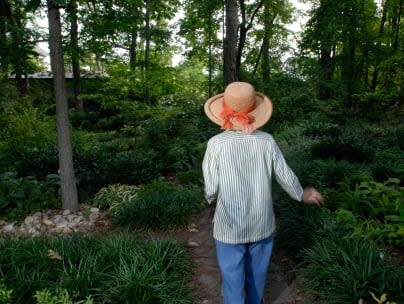It's Healthy To Work 'Til You Drop

There is a bright side to economists' predictions that many may need to work until the day they die. It can be good for your health.
Keeping a purpose in your life, going for a goal, and interacting with other people through work -- be it paid employment or as a volunteer -- staves off depression and even death, researchers have concluded. One study from Brigham Young University equated the health effects of social isolation to smoking 15 cigarettes a day.
Indeed, people such as Target cashier Jeanne Brouillet, who recently retired at age 95, may become less of a rarity. As she told WCCO, "If you don't use it you lose it, so I have kept on using it and have enjoyed every minute of it."
Post-retirement career
The implication is that those who toil in professions where advanced age can become an impediment (say construction work or anything requiring specific physical strength and endurance) should plan early on for their "post-retirement career."
Of course, if you're Diana Nyad, you can be in swimmingly good shape well past the age of 60. Nyad recently fulfilled a lifelong dream of swimming from Cuba to Florida.
Professionals such as accountants or attorneys can reduce their schedules or perform pro bono work. A laborer might benefit from cultivating more empathy and reading is one way to achieve that.
Retiring at 80
A recent survey from Wells-Fargo of 1,000 "middle-class Americans" earning between $25,000 and $99,000 indicated 37 percent expect to work until they're too sick or die. Another 34 percent expect they won't retire until they're 80.
Will Oremus, a writer for Slate, catalogued a number of famous figures who died shortly after retirement. They include: Penn State football coach Joe Paterno, Alabama football coach Bear Bryant, Peanuts creator Charles M. Schulz and 60 Minutes host Andy Rooney.
A Shell Oil study of former workers published in 2005 found those who retired at 55 died younger, on average, than those who retired at 65, even when they lived on past 65.
Professor Peggy Koopman-Boyden, a social gerontologist, said in a recent interview that retirement should not be confused with idleness.
"Now, we have a lot more people who move from full-time work, to part-time, to part-time voluntary work, and then they have all their own interests," she told The Waikato Times in New Zealand, equating it to the ultimate career change.

How are you planning to work in your older years? Share your comments below.

